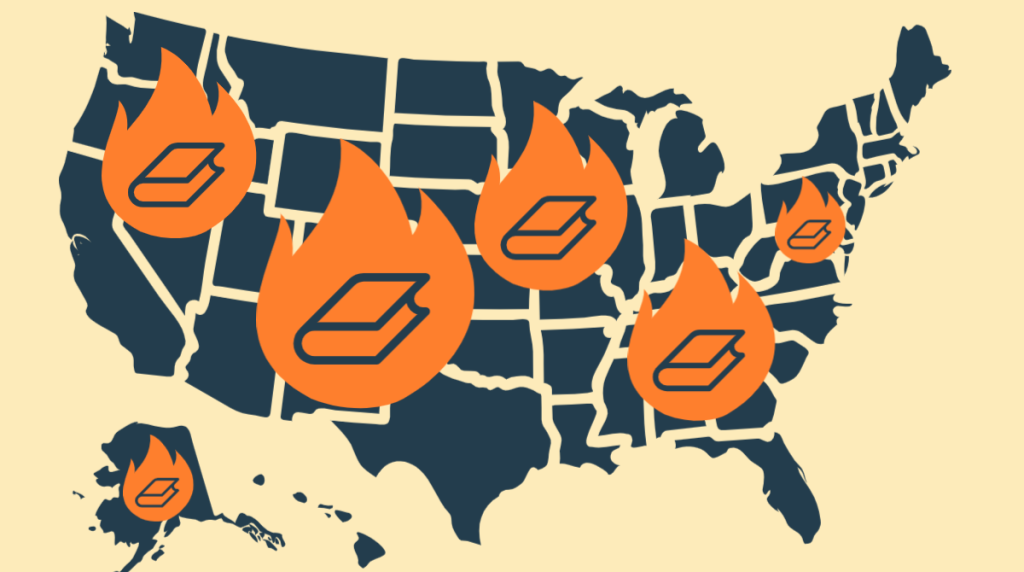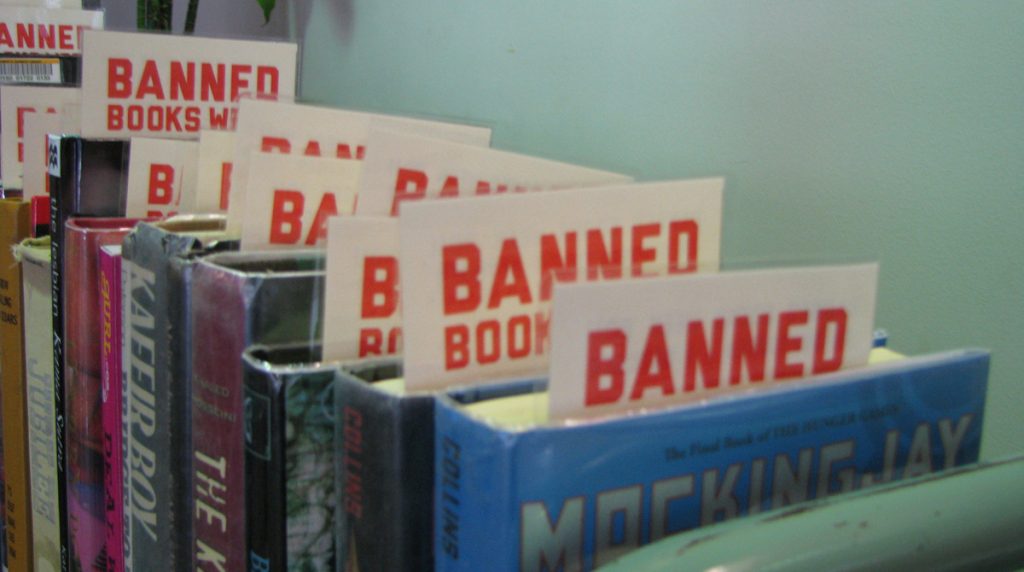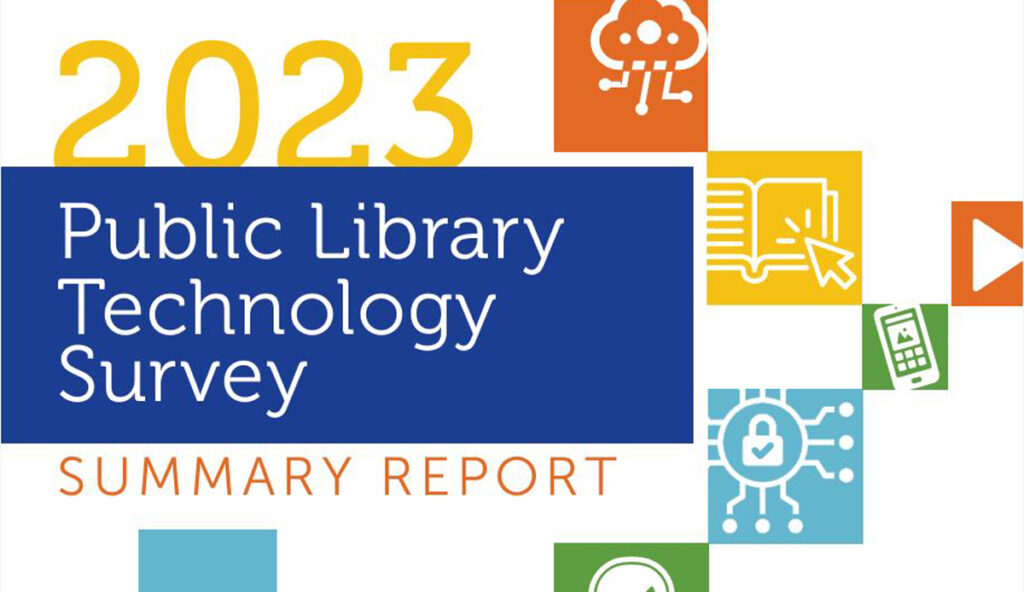Libraries and schools across the country are experiencing unprecedented levels of attempts to ban or remove books from their shelves. I Love Libraries will continue to raise awareness by highlighting attempts to censor library materials, as well as efforts by librarians, parents, students, and concerned citizens to push back against them. This report includes news from New Jersey, Georgia, and Virginia, as well as testimony from a school librarian who’s received death threats for standing up for the right to read.
New bill in New Jersey would cut aid to libraries, schools that block access
Public and school libraries in New Jersey that ban or restrict access to books could have state funding cut if a law proposed by Democratic senators passes the state legislature, reports NorthJersey.com. The bill, sponsored by Sen. Andrew Zwicker and Sen. Teresa Ruiz, aims to prohibit the banning of books in public libraries and public schools.
"Librarians should not be in the middle of this fight, and book-banning is always wrong," Zwicker said.
Zwicker said he supports parental rights and the need for parents to know what their children read, but that can occur through conversations between them. He does not think it is fair to control access to content for all parents and all children.
Georgia school district’s book ban created “hostile environment,” says Dept. of Education
The U.S. Department of Education’s Office for Civil Rights (OCR) has found that Forsyth County (Ga.) School District’s removal of books featuring Black and LGBTQ+ characters may have created a hostile environment that violated students’ civil rights, reports LGBTQNation.
The investigation into the district came in response to a complaint alleging that it had “discriminated against students on the basis of sex, race, color, and national origin” by removing 14 books from library shelves after receiving complaints about the books’ “explicit sexual content” and “LGBTQI+ subject matter.”
OCR found that while Forsyth County Schools was aware that its book screening process “may have created a hostile environment for students,” its “responsive steps related to the book screening process were not designed to, and were insufficient to, ameliorate any resultant racially and sexually hostile environment.”
School board in Virginia receives troubling list of proposed book bans weeks after announcing proposed new review policy
Within weeks of introducing a new proposed system for seeking the removal of books in county schools, Hanover County (Va.) School Board received a list of about 100 books an organization wants off school library shelves, with a note saying it is “just a beginning.” The rhetoric has parents questioning how far the list will expand, reports WCIR News.
One of the board’s recent proposed book review policy changes would have any books accused of being “vulgar” or “obscene” immediately removed from schools while under review. Some in the community worry this will be taken advantage of.
“We have seen this before,” area resident Shoshanah Spiggle said. “The Nazis have tried to burn books and erased the contents of those books.”
“Librarians are suffering because of book bans. I know because I’ve received death threats.”
School librarian Elissa Malespina writes in NJ.com about the harrowing experiences she faced for standing up for the freedom to read at Verona (N.J.) High School.
“School librarians also make sure that students — no matter what race, gender, religion, nationality or sexual preference — feel seen in the books and materials that we expertly curate and add to our libraries. It is now us who no longer are feeling safe because we dare to purchase diverse books and materials.”
She continued: “During this last year, I have faced slanderous attacks online and death threats. I have filed police reports and had to have security when I speak at conferences. All because of attacks that have occurred on social media and in emails but also emails addressed to my new employer that spread vicious lies.”
Malespina isn’t alone, either. She writes: “I have watched dear school librarian friends face being called pedophiles, porn mongers and so many more hateful and slanderous things. I am so proud of both my dear friend Amanda Jones and also my fellow New Jersey school librarian Roxana Caivano, who are fighting back by filing defamation lawsuits against their attackers.”
Take action
Alarmed by the escalating attempts to censor books? Here are five steps you can take now to protect the freedom to read.
1. Follow news and social media in your community and state to keep apprised of organizations working to censor library or school materials.
2. Show up for library workers at school or library board meetings and speak as a library advocate and community stakeholder who supports a parent’s right to restrict reading materials for their own child but not for all
3. Help provide a safety net for library professionals as they defend intellectual freedom in their communities by giving to the LeRoy C. Merritt Humanitarian Fund.
4. Educate friends, neighbors, and family members about censorship and how it harms communities. Share information from Banned Books Week.
5. Join the Unite Against Book Bans movement to learn what you can do to defend the freedom to read in your community.



